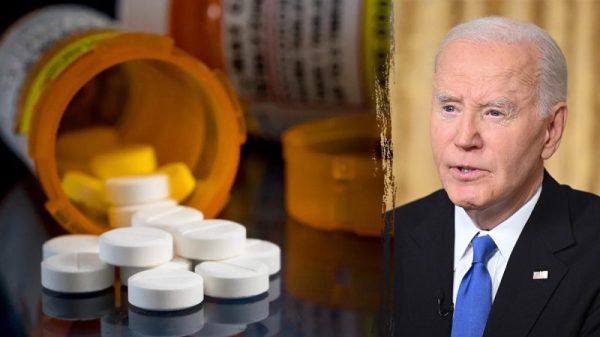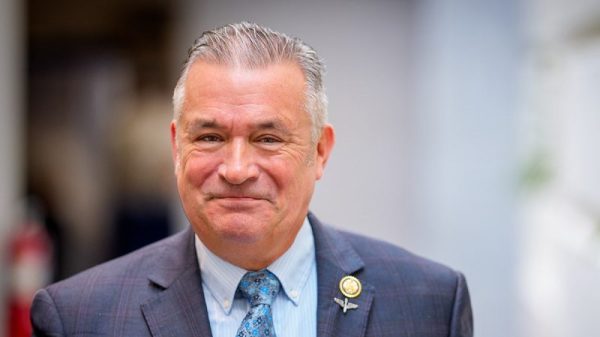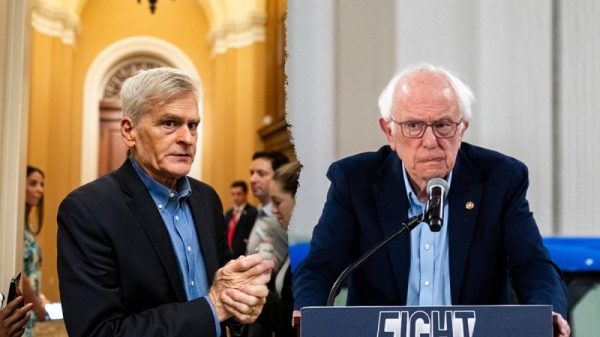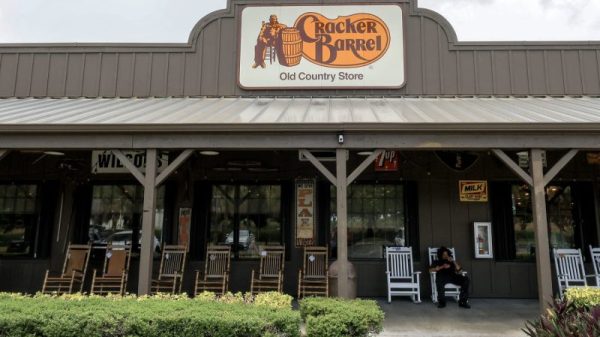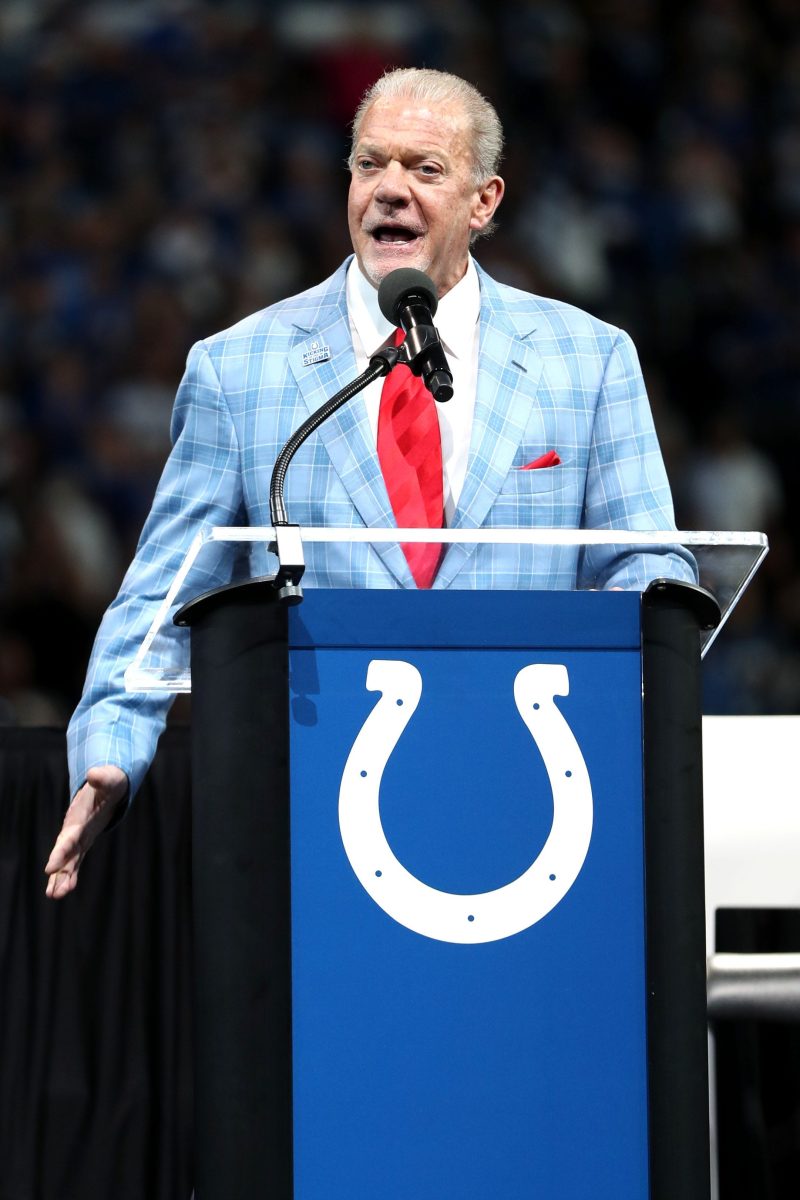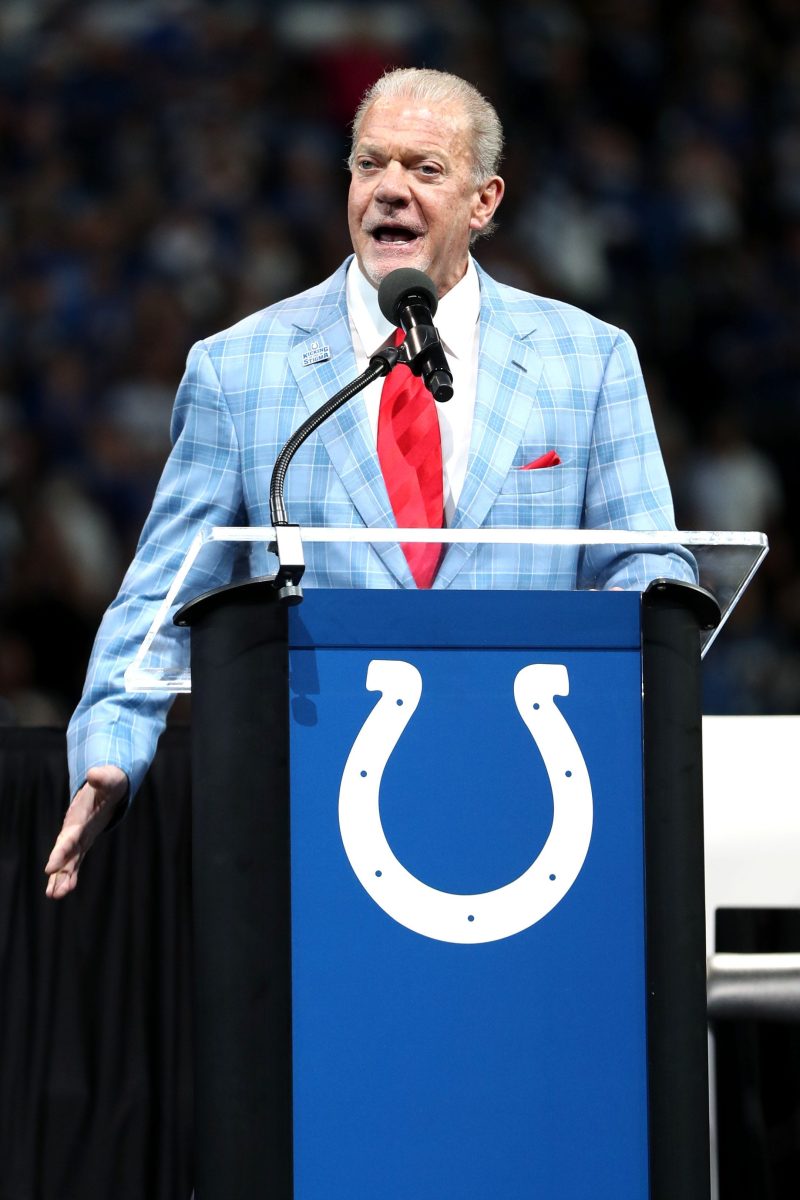
- Indianapolis Colts owner Jim Irsay, who championed the ‘Kicking the Stigma’ initiative, passed away in May after multiple alleged undisclosed relapses.
- Irsay’s story highlights the insidious nature of addiction and the shame that prevents many from seeking help.
Addiction is insidious.
It does not care who you are, what you look like, where you live or how much money you have in your back account. It does not let go easily, sometimes lying dormant for years before resurfacing with a vengeance. For every person who beats it, once and for all, there are hundreds more who never escape its grip.
It is an evil, devious and dangerous thing, and much of its power stems from the shame and secrecy that every addict knows all too well. Addiction is often seen as some moral failing rather than the disease that it is, preventing those in its hold from seeking help or acknowledging a problem.
Indianapolis Colts owner Jim Irsay knew this, all this, better than most. And the revelation that he had suffered several relapses in the years before his May death, relapses he kept quiet at the same time he was trying to end the stigma of addiction, does not diminish all the good that he did.
Rather, it’s a reminder of the importance of his “Kicking the Stigma” initiative and the imperative that it continues.
“A lot of people don’t understand the disease,” Irsay told USA TODAY Sports in 2014. “They think you choose an addiction. At the same time, I’ve had many, many years of continual recovery. What’s really important is that you can be honest and talk about an illness.”
No one chooses to be an addict, just as no one chooses to get cancer or heart disease or poor eyesight. Our lifestyles can be a contributing factor, as can our genetics. Irsay often said he came by his addictions naturally, his father and his grandfather both being alcoholics.
But we do not shame people with congenital heart disease or shun people with breast cancer. We do not question why someone got arthritis or ask someone with diabetes why they can’t control their blood sugar. Their afflictions are seen, rightfully, as medical conditions, the whys and hows of which are irrelevant. Instead of judgment, we show compassion and empathy.
Addicts are not given the same grace. They’re seen as weak or selfish. Rehab is often considered to be punishment as much as it is life-saving care. When that’s the way the world sees and treats you, what incentive is there to get clean? To resist the temptations to which you might be predisposed?
When addiction is deemed a personal failing, of course you’re going to try and hide it. If you know the world is going to judge you, wouldn’t you, too? If you know you’re going to be blamed for your affliction, would you be willing to share it?
Irsay is to be lauded for his openness about his struggles. But there is a powerful lesson to be had from the secrecy he felt compelled to keep at the end of his life, too.
Irsay knew exactly who and what he was. He was an alcoholic and a prescription drug addict — opioids, mostly, though the Washington Post said he’d been using ketamine in the months before his death. He’d been to rehab “at least 15 times.”
He knew the best way to treat addiction and mental illness, which often go hand in hand, was to bring it into the open. To stop the shaming and the blaming and focus on finding treatments that work and support for those struggling.
Report: Former Colts owner Jim Irsay overdosed, received ketamine treatments before death
Since 2020, Kicking the Stigma has committed $32 million to nonprofits specializing in mental health. Some are focused on addiction and recovery. Others address the anxiety and isolation that can fuel an addiction.
“We’ve got to quit stigmatizing,” Irsay told NFL.com in 2021. “We have to find a way to stop badgering and torturing and chasing down people like they are criminals. It’s so horrendous. It’s no wonder a lot of people die.’
Irsay now included.
Irsay might have been a billionaire NFL owner, with access to all the help that exists. But he experienced the same kind of recriminations as every other American who suffers from addiction. Embarrassment that he couldn’t kick it. Fears it could cost him his job; after his operating while intoxicated arrest in 2014, Irsay was suspended by NFL commissioner Roger Goodell for six games and fined $500,000.
That Irsay didn’t want to admit to more relapses is understandable. There was, seemingly, so much at stake in his sobriety. For him. For the Colts. For Kicking the Stigma. For all those people to whom he’d given hope.
That Irsay relapsed and didn’t feel he could be open about it doesn’t mean he failed. It means we all did.
Follow USA TODAY Sports columnist Nancy Armour on social media @nrarmour.





